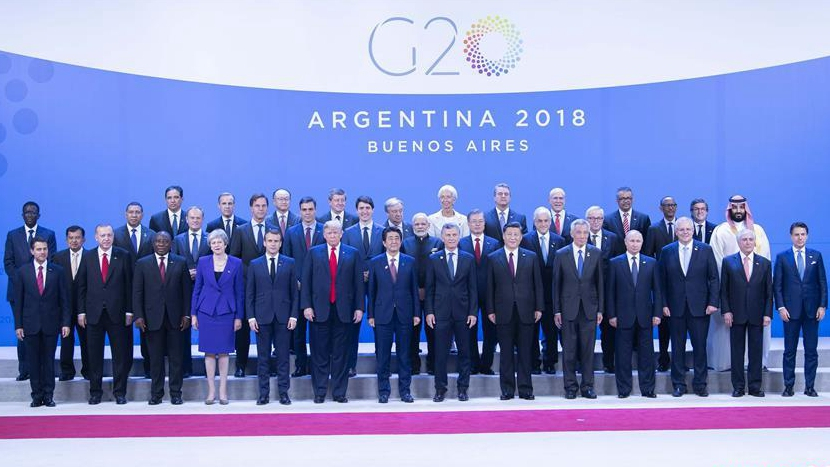Chinese President Xi Jinping upheld world multi-polarization, economic globalization and multilateralism and called for win-win cooperation during his Europe and Latin America tour, injecting "positive energy" into the international community that is currently "filled with anxiety," Chinese State Councilor and Foreign Minister Wang Yi said on Wednesday as Xi wrapped up his nine-day visits.
Wang, who was accompanying Xi, made the remarks in the Portuguese capital of Lisbon while briefing reporters on the diplomatic tour.
Read more:
The Chinese president paid state visits to Spain, Argentina, Panama and Portugal and attended the 13th summit of the Group of 20 (G20) in Buenos Aires from November 27 to December 5, during which he took part in nearly 70 bilateral and multilateral events. Xi returned to Beijing on Thursday.
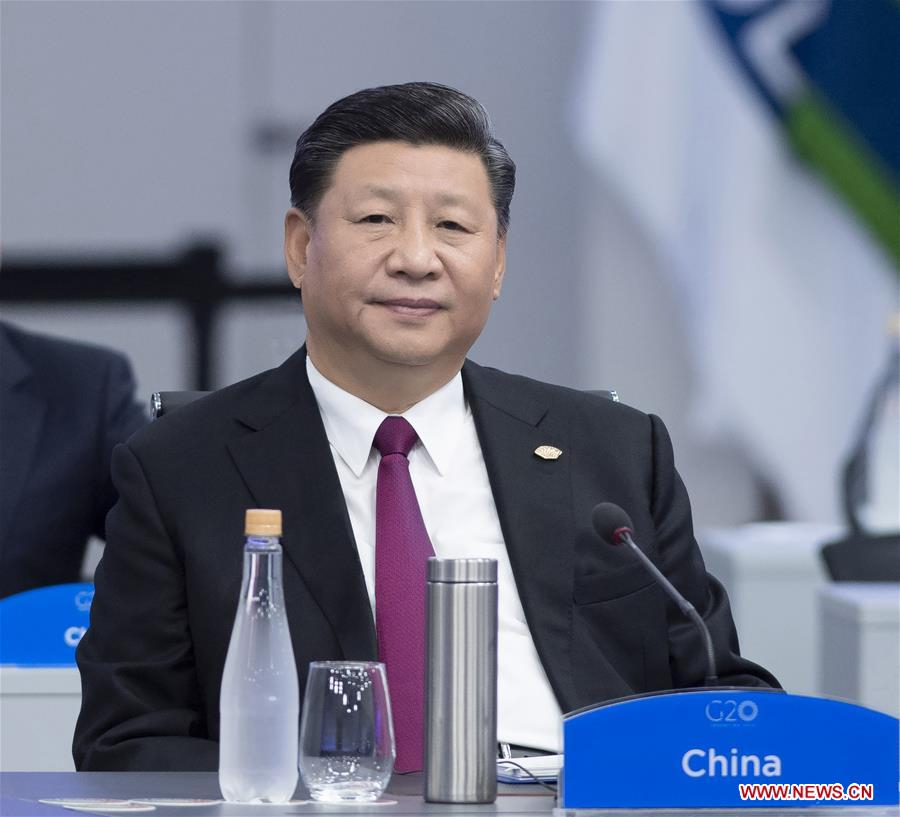
Chinese President Xi Jinping delivers a speech at the 13th summit of the Group of 20 (G20) in Buenos Aires, Argentina, November 30, 2018. /Xinhua Photo
Chinese President Xi Jinping delivers a speech at the 13th summit of the Group of 20 (G20) in Buenos Aires, Argentina, November 30, 2018. /Xinhua Photo
Multilateralism and open trading system
With economic globalization suffering setbacks and multilateralism under threat, Xi stressed that multilateralism, consultation on the basis of equality and win-win cooperation are solutions to the challenges faced by G20 members, calling for unity among the world's major economies, the Chinese state council said.
Wang added that Xi also participated in discussions on global issues such as sustainable development and climate change at the G20 Summit and urged international cooperation in these areas.
Read more:
In terms of global economic governance, Xi underscored the importance of openness and cooperation, partnership, innovation and shared benefits at the summit, Wang told reporters.
Meanwhile, Xi called on G20 nations to take their responsibilities in promoting an open, inclusive and rules-based international trading system, according to the top Chinese diplomat.
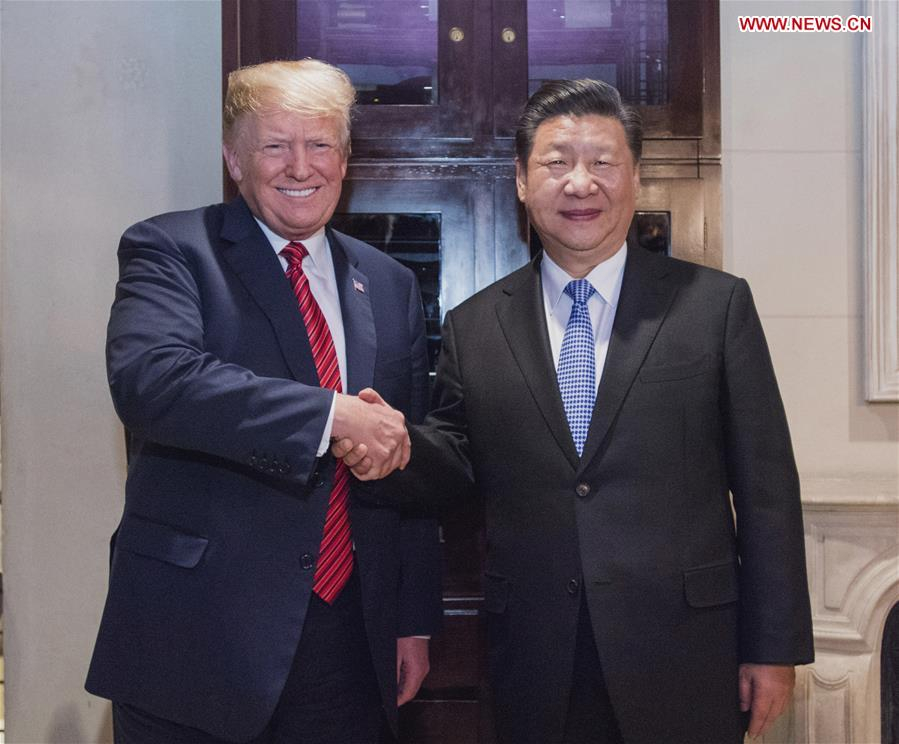
Chinese President Xi Jinping (R) meets with his U.S. counterpart Donald Trump in Buenos Aires, Argentina, December 1, 2018. /Xinhua Photo
Chinese President Xi Jinping (R) meets with his U.S. counterpart Donald Trump in Buenos Aires, Argentina, December 1, 2018. /Xinhua Photo
On the sidelines of the summit, the Chinese president met with several other world leaders, including U.S. President Donald Trump, Russian President Vladimir Putin, Indian Prime Minister Narendra Modi, French President Emmanuel Macron, Turkish President Recep Tayyip Erdogan, German Chancellor Angela Merkel, Japanese Prime Minister Shinzo Abe and Saudi Crown Prince Mohammed bin Salman.
Wang said the
Xi-Trump meeting has prevented trade frictions between the world's top two economies from further escalating and brought the two sides back to the negotiating table, hailing it good news for global trade and world economy.
New fronts in Belt and Road cooperation
Xi's state visits to the four European and Latin American countries witnessed further pledges on Belt and Road cooperation.
Proposed by Xi in 2013, the Belt and Road Initiative comprises the Silk Road Economic Belt and the 21st Century Maritime Silk Road, and aims to build trade and infrastructure networks connecting Asia with Europe and Africa along and beyond the ancient Silk Road routes.
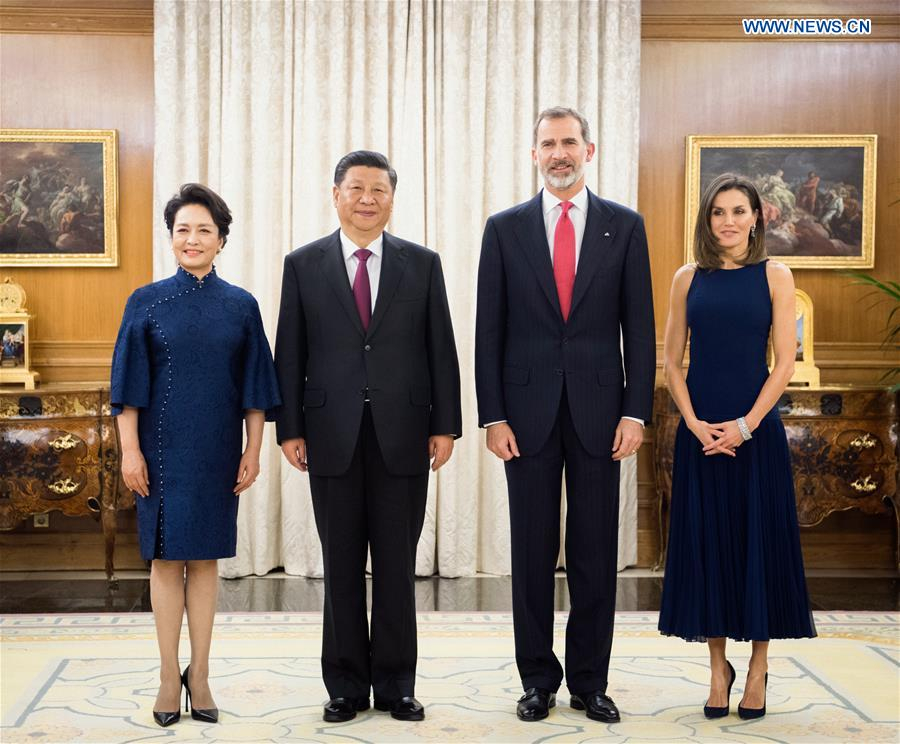
Chinese President Xi Jinping (L2) and his wife Peng Liyuan (L1) pose for a photo with Spain's King Felipe VI and Queen Letizia in Madrid, Spain, November 27, 2018. /Xinhua Photo
Chinese President Xi Jinping (L2) and his wife Peng Liyuan (L1) pose for a photo with Spain's King Felipe VI and Queen Letizia in Madrid, Spain, November 27, 2018. /Xinhua Photo
Both Spain and Portugal have been actively involved in Belt and Road cooperation and have harvested some "early results," Wang said, noting that the two countries are working with China to jointly explore third-party markets under the initiative. China and Portugal
signed a memorandum of understanding on jointly advancing the construction of the Belt and Road on Wednesday.
In addition, China signed about 20 cooperation deals with Spain and Portugal respectively, covering areas such as economy and trade, science and technology, finance and energy, Wang said.
China and Argentina and Panama are consolidating political mutual trust and accelerating the alignment of development strategies, while the Belt and Road Initiative is extending to Latin America, he noted. Wang described Panama as a "natural partner" in Belt and Road cooperation, and reviewed the five-year joint action plan and around 30 cooperation agreements signed between China and Argentina.
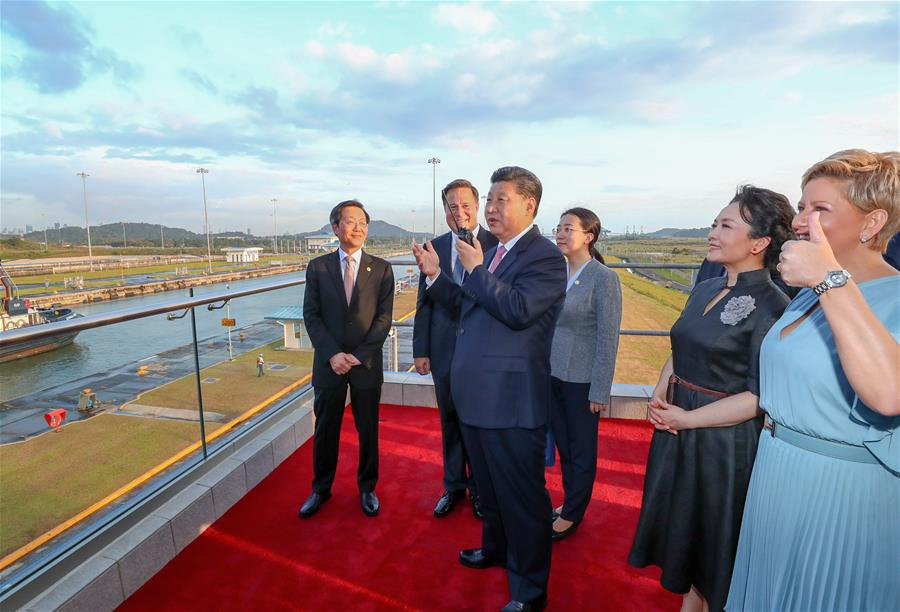
Chinese President Xi Jinping (L3) talks via interphone to the captain of Shipping Rose, a vessel of China Ocean Shipping Company (COSCO) which is waiting at the first locks of the Panama Canal, in Panama City, Panama, December 3, 2018. /Xinhua Photo
Chinese President Xi Jinping (L3) talks via interphone to the captain of Shipping Rose, a vessel of China Ocean Shipping Company (COSCO) which is waiting at the first locks of the Panama Canal, in Panama City, Panama, December 3, 2018. /Xinhua Photo
"Latin American countries are embracing the Belt and Road Initiative enthusiastically and looking forward to strengthening ties and deepening the integration of interests with China," he said, stressing that China-Latin America cooperation is a mutual help between developing countries, which will make more positive contributions to peace and development in the region and worldwide.
(Cover: Chinese President Xi Jinping (R6, front) poses for a group photo with other leaders attending the 13th summit of the Group of 20 (G20) in Buenos Aires, Argentina, November 30, 2018. /Xinhua Photo)

